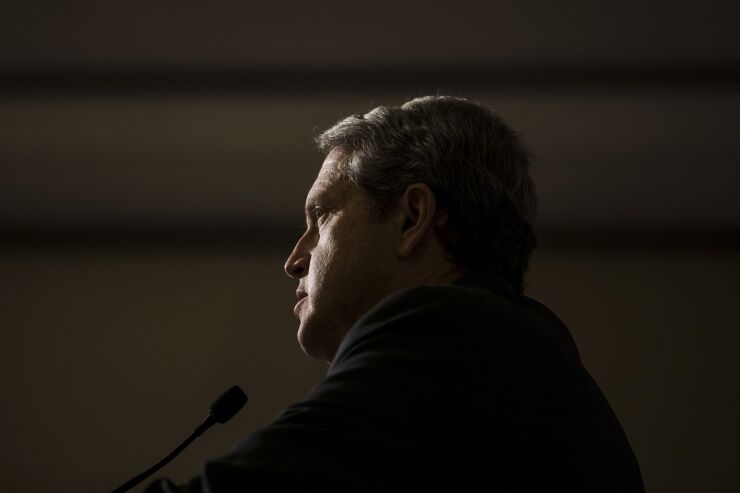Receiving Wide Coverage ...
Another Wells scandal
Wells Fargo has
“We have terminated the employment of those individuals and will cooperate fully with law enforcement,” David Galloreese, the bank’s head of human resources, wrote in a memo to employees. “These wrongful actions were personal actions and do not involve our customers.”
The memo said the employees
Financial Times
Health warning
Randal Quarles, the Federal Reserve’s vice chair for supervision, “warned that the health of consumer loans

“Consumer lending and residential mortgages seem to be holding up well so far, which may reflect the relatively high quality of household credit going into the Covid event,” Quarles said in remarks to the Hoover Institution on Wednesday. “However, the performance of these loans also needs to be watched closely in light of the forbearance policymakers have encouraged and the possibility of a reduction in fiscal support for households.”
“The comments from Mr. Quarles came as America’s biggest lenders unveiled dramatically lower loan loss charges for the third quarter and said most of their consumers who asked for a pause on obligations had resumed payments.”
Quarles appeared to throw cold water on hopes that the central bank will permanently allow systemically important banks to exclude Treasury securities and deposits at federal regional banks from the supplementary leverage ratio, American Banker’s Hannah Lang reported.
SMS to the rescue
A Turkish fintech company is expanding a service that allows consumers to
“If you need to take a bus you just send an SMS,” Payguru’s CEO Isik Uman said. “It’s a real payment method that makes it easier for people to top up their cards.”
New York Times
Feelin' alright
“Hundreds of thousands of small businesses are closing for good. Temporary layoffs at larger companies are becoming permanent. But the country’s largest banks are not raising an alarm,” the Times says, which looks at the common themes in this week’s third quarter earnings releases.
The “big banks have said they are
Washington Post
Get a grip
“When Jane Fraser takes the helm of Citigroup in February, she’ll be the first woman to lead a top Wall Street bank,” a Bloomberg op-ed piece says. “Let’s hope she also becomes the lender’s first chief executive officer in 15 years
Doing this will require patience and money. Fraser will [also] need a sense of urgency. Even in a pandemic, managing risk effectively must be her priority. How to do this while increasing profit will be the real challenge.”





